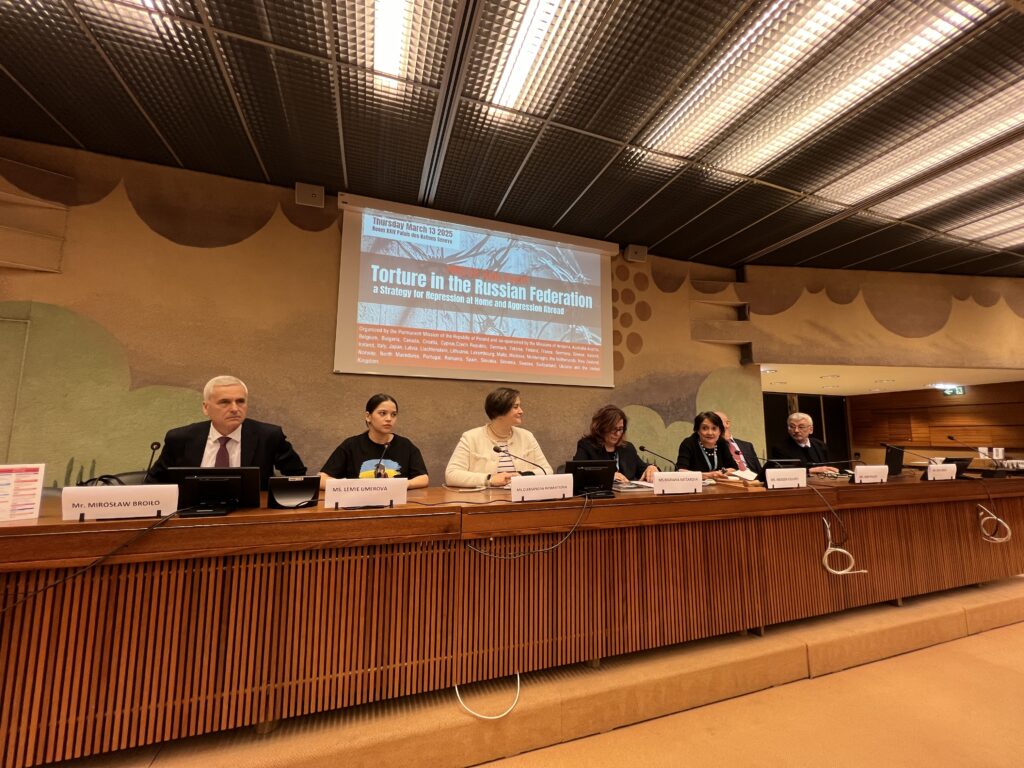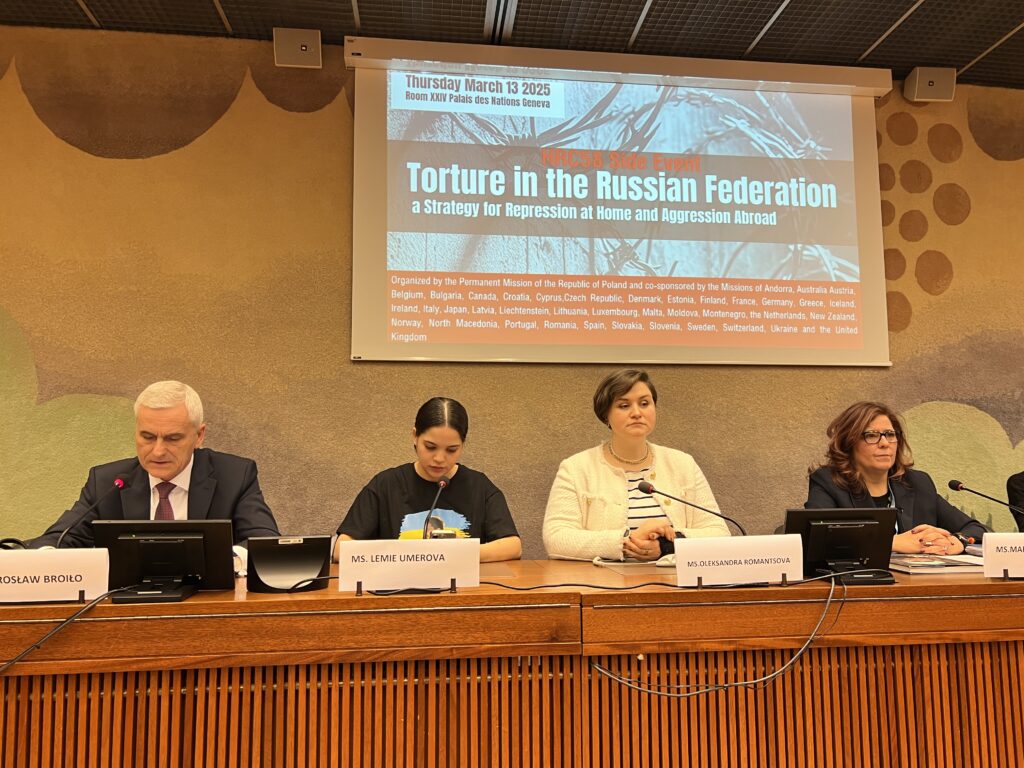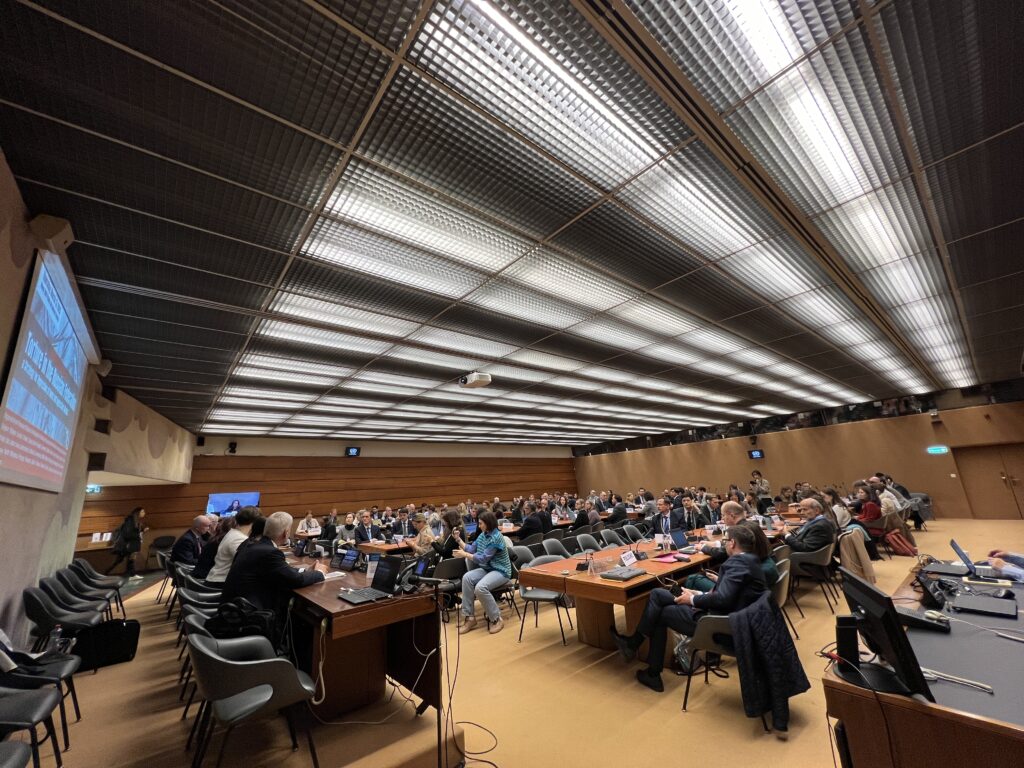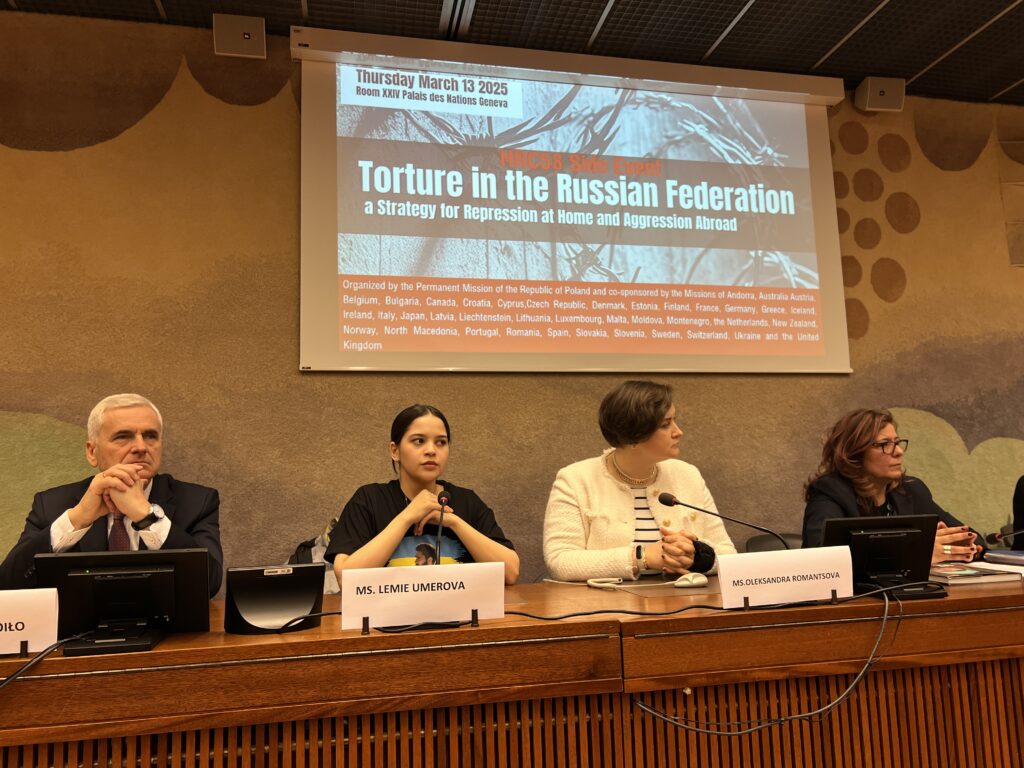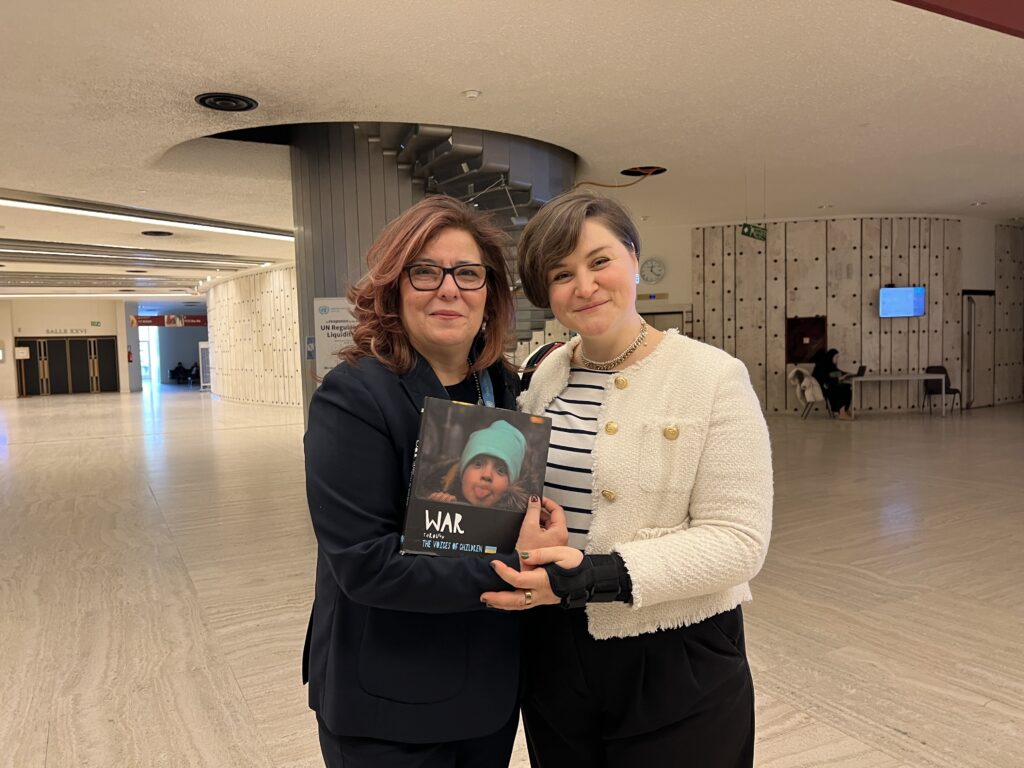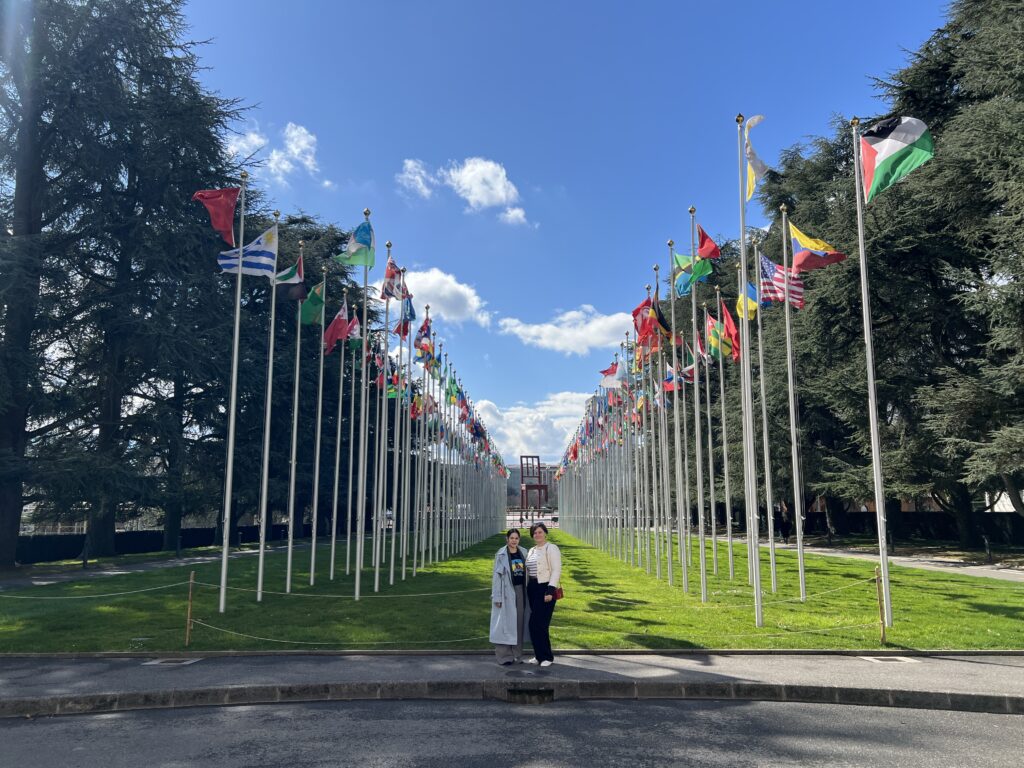«Help us save people, the human rights system and the world». Oleksandra Romantsova during the side event at the 58th session of the UN Human Rights Council
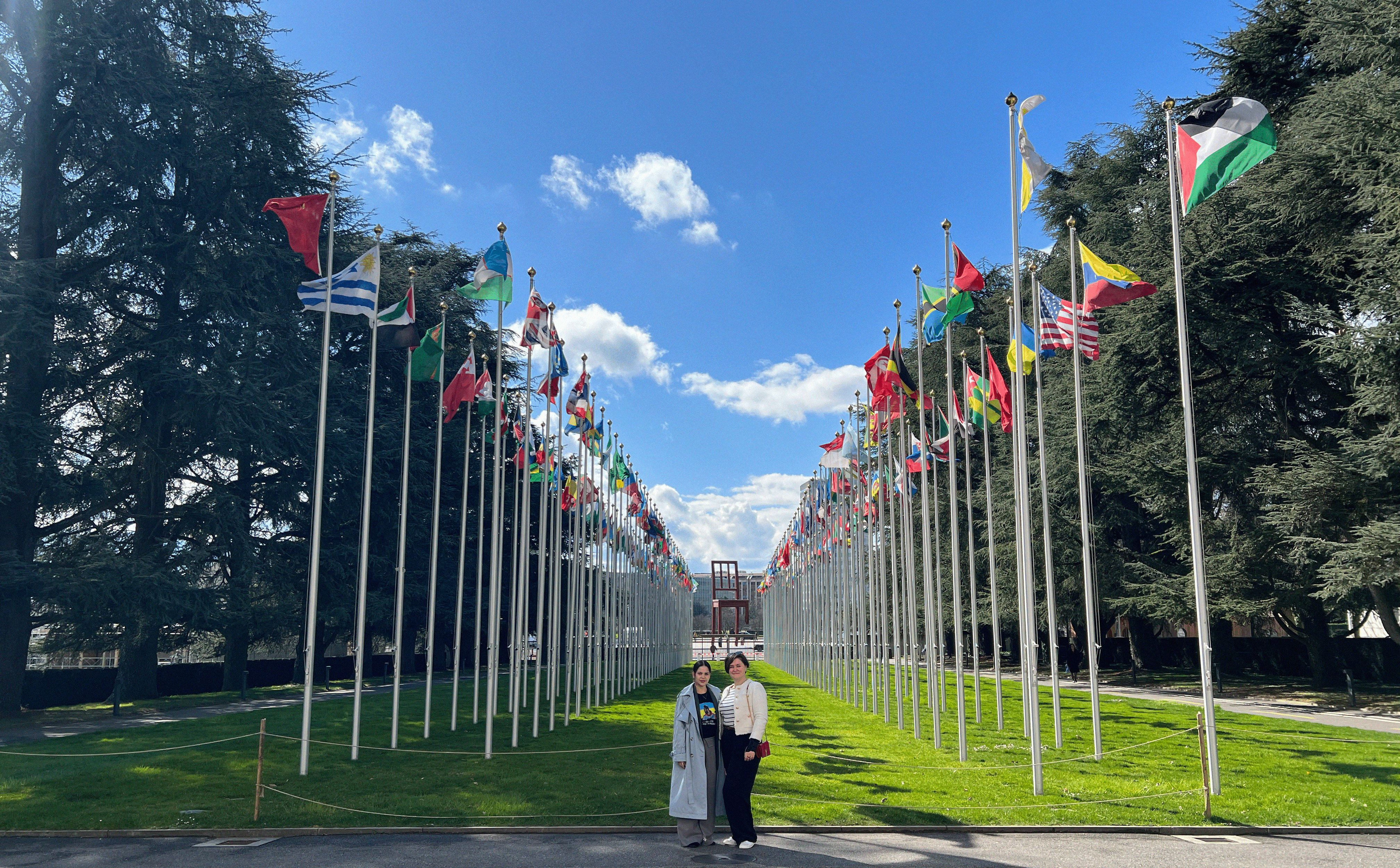
From 24 February to 4 April 2025, the 58th session of the UN Human Rights Council is taking place in Geneva, Switzerland, bringing together human rights defenders, lawyers, politicians and diplomats from all over the world to talk about peace and how to defend it. As High Commissioner Volker Türk said while opening this year’s session, “Upholding human rights makes eminent sense for stability, for prosperity, for a better common future”. On 13 March, Oleksandra Romantsova, Executive Director of the Center for Civil Liberties, spoke at the side event entitled “Torture in the Russian Federation: A Strategy for Repression at Home and Aggression Abroad”.
The side event was organised by Poland in cooperation with UN member states. It was moderated by Imogen Foulkes, BBC News correspondent in Geneva, and Mirosław Broiło, Chargé d’Affaires a.i. of the Republic of Poland to the United Nations Office at Geneva, made opening remarks. Apart from Ms Romantsova, other speakers were Mariana Katzarova, UN Special Rapporteur on the situation of human rights in the Russian Federation; Oleg Orlov, former political prisoner, human rights defender and co-chair of the Russian “Memorial” organisation, Nobel Peace Prize laureate; Leniie Umerova, former Ukrainian civilian prisoner in the Russian Federation; and Ivan Pavlov, Russian human rights defender in exile and the founder of Department One.
Since its full-scale invasion of Ukraine in 2022, Russia has been imprisoning independent voices – journalists, human rights defenders, activists, opposition politicians and war critics from all walks of life. In Russia, over 2,000 political prisoners are being kept under conditions that are life-threatening and amount to torture. The Russian authorities are making increasing use of its national security law and bringing such criminal charges as “treason”, “espionage”, “terrorism”, and “extremism” to punish dissidence. Since 2022, thousands of Ukrainians have been deported to Russia and subjected to enforced disappearances and systematic torture, including rape and sexual violence.
On 29 October 2024, at the 79th session of the UN General Assembly, Mariana Katzarova presented the report “Torture in the Russian Federation: a tool for repression at home and aggression abroad”, where she documented the systematic use of torture, authorised by the government, as a repression strategy in Russia and a means of aggression against Ukraine. In her statement from 24 February 2025, the Special Rapporteur called for accountability and warned that there could be no lasting peace without human rights guarantees and justice.
At this side event, representatives of UN member states learned directly from Mariana Katzarova about her findings and also the stories of the Russian former political prisoner and the former civilian prisoner. And Oleksandra Romantsova, Executive Director of the Center for Civil Liberties, emphasized the following:
“We have documented over 84,000 war crimes committed by Russians in the territory of Ukraine. Most evidence comes from their own social media as they are publishing it and are proud of it. Just imagine police officers being proud of beating people who are not even declared guilty. You may not even be a Ukrainian; you may be just a Russian citizen, but you may have no idea why in the kindergarten, your child must kneel for Putin. You can be arrested just because you support a person from Ukraine, who used to be a taxi driver, went to the frontline, and now, after being wounded, is a Paralympic champion. You just like the courage of this person, but you will be arrested for this.
140 million people absolutely similar to the people in this room live in Russia. The question is: How were they driven into a situation where they either feel no responsibility for their state or lack the power to say anything against its decisions? Many of them have relatives in Ukraine. I have relatives in Russia too, and they do not choose me, their kin; they prefer their state.
Human rights defenders from the Center for Civil Liberties and other partner organisations are documenting war crimes and collecting names, trying to figure out where people taken into Russian captivity are. These people should be point number one of any talks. They are still alive, they should be saved, they should be returned home. We received 174 dead bodies in the last three years. These people were not killed on the frontline, they perished in Russian captivity. People who are alive need help; that’s why please help us save people, the human rights system and the world”.
Oleksandra Romantsova closed the side event with the words “Slava Ukraini”, or “Glory to Ukraine”, already known to everyone beyond the borders of our country.

